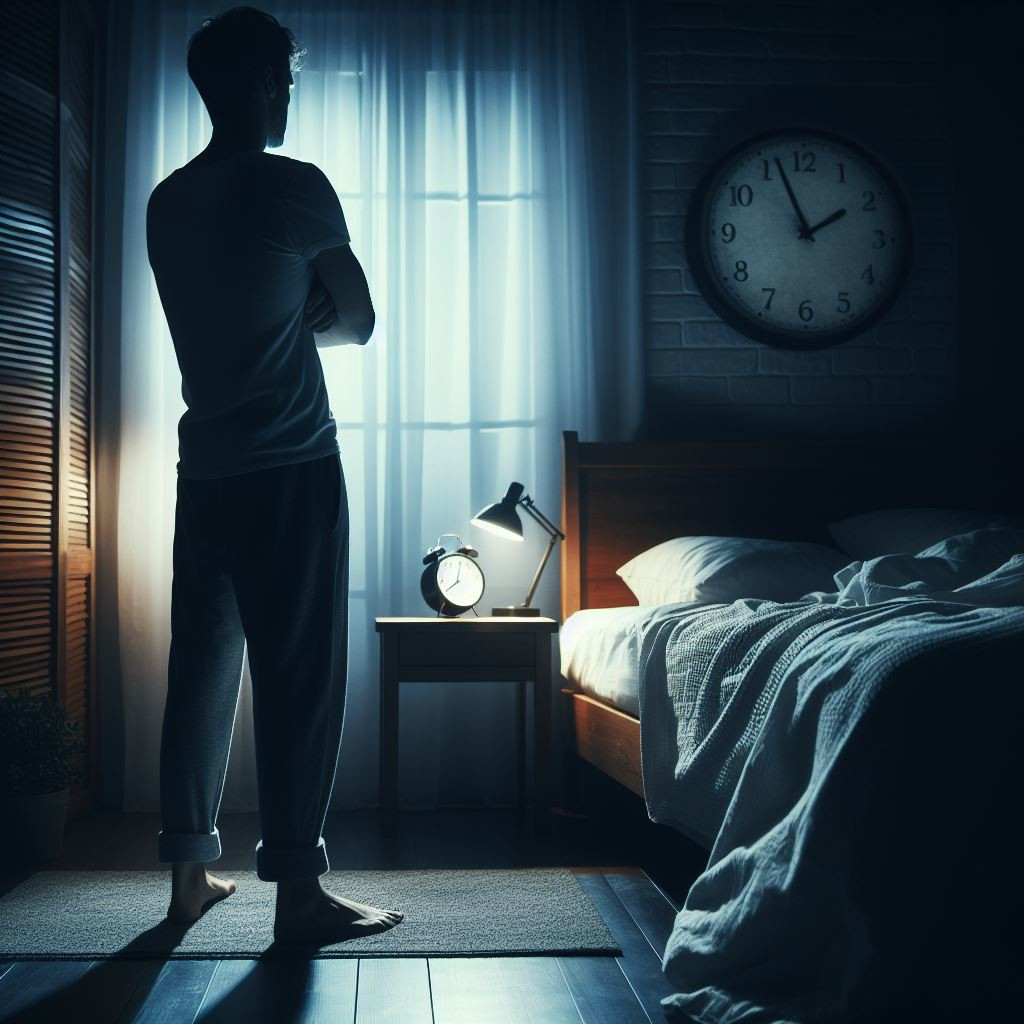Bedtime procrastination, also known as “revenge bedtime procrastination”, is a phenomenon that describes the intentional delay of going to bed, even when individuals are aware of the negative consequences of sleep deprivation on their daily functioning and mental health. This behaviour is primarily driven by a desire to reclaim some autonomy and control over one’s time, particularly in the context of hectic, stressful, or emotionally overwhelming daytime schedules.
Table of Contents
For some individuals, the nighttime offers a temporary respite from the demands and expectations of the day, providing an opportunity to unwind, engage in leisure activities, or simply be alone with their thoughts.
Sometimes we find solace in the stillness and quiet of the night, which aligns with our emotional state and offers us a sense of acceptance and calm from the pressures of the working day. This desire for a break from the demands of the day, coupled with a persistent sense of dread about the stress of starting the next day, can create a powerful incentive to postpone sleep, even when doing so may exacerbate existing mental health challenges, such as depression.
Is going to bed late depression?
The connection between bedtime procrastination and depression is complex. While not all individuals who experience bedtime procrastination may have a formal diagnosis of depression, the behaviour can certainly contribute to and exacerbate depressive symptoms. Sleep deprivation is a well-established risk factor for depression, and individuals who consistently prioritise other activities over sleep may be more vulnerable to developing depressive symptoms or experiencing worsening of existing symptoms. Depressive feelings, emotional crises, and burnout may be linked to their bedtime procrastination, creating a vicious cycle of sleep deprivation, stress, and worsening mental health. If you feel you might be struggling with mental health problems, it is better to see a psychologist sooner rather than later.
Bedtime procrastination as managing mental health problems?
Bedtime procrastination is not necessarily a reflection of irrationality or a lack of effort on the part of the individual. Instead, it is often a coping mechanism that develops in response to challenging life circumstances, stressors, or emotional struggles. For instance, growing up in an environment that did not “believe” in mental illness may have contributed to their hesitance to understand, acknowledge, and address their own emotional challenges, further reinforcing the cycle of bedtime procrastination and depression.
Depression, morning struggles, and going to bed late
The morning hours can be particularly challenging for individuals who experience revenge bedtime procrastination, as the prospect of facing a new day filled with demands and expectations can be overwhelming, especially when coupled with the physical and emotional effects of sleep deprivation. However, these feelings typically improve as the day progresses, suggesting that the individual has the capacity to cope and adapt to the challenges of the day, even when mornings feel daunting.
However, as we start to feel better later in the day, we might want to hold on to this feeling, rather than go to bed and face the morning challenges again, ultimately maintaining poor sleep hygiene and depressive symptoms.
Is going to bed very late bad for you?
Going to bed very late regularly can have negative effects on your health and well-being. Here are some reasons why:
- Disruption of the circadian rhythm: Your body has an internal clock, known as the circadian rhythm, that regulates various physiological processes, including sleep-wake cycles. Going to bed at irregular times or very late can disrupt this rhythm, leading to difficulty falling asleep and staying asleep.
- Melatonin production: Melatonin is a hormone that regulates sleep-wake cycles and is produced in response to darkness. Going to bed very late can disrupt melatonin production, making it harder to fall asleep and stay asleep.
- Negative impact on mental health: Chronic sleep deprivation, which can result from going to bed very late, can have negative effects on mental health, including lower concentration levels during the day, stress, anxiety, and depression.
- Reduced cognitive performance: Lack of sufficient sleep can lead to impaired cognitive performance, including decreased attention, memory, and decision-making abilities.
- Increased risk of physical health problems: Chronic sleep deprivation has been linked to an increased risk of various physical health problems, including obesity, diabetes, cardiovascular disease, and weakened immune function.
Why do I delay going to bed?
As discussed, many factors contribute to this complex but unhelpful behaviour. Some possible explanations include:
- An overemphasis on work-life balance leading to neglect of self-care.
- High levels of stress and burnout caused by excessive demands at work or home.
- Negative feelings before and during bedtime procrastination, feeling stressed, anxious, and guilty when going to bed.
- Difficulty falling asleep due to overthinking and anxiety.
- Societal pressure to constantly stay connected and engaged.
- The allure of instant gratification provided by digital entertainment.
- An ingrained cultural belief that sleep is less important than productivity.
- Unrealistic expectations about the amount of sleep required.
- The lack of effective coping mechanisms for dealing with stress.
How can I go to bed on time and avoid bedtime procrastination?
Here are some advice on bedtime hygiene to promote better sleep quality and address bedtime procrastination:
Consistent sleep schedule
Try to go to bed and wake up at the same time every day, even on weekends, to regulate your body’s internal clock and improve the quality of your sleep. It will be hard initially, so do it step-by-step. If you are going to bed at 3 am, start shifting it 30 minutes earlier every day (2:30 am, 2:00 am, etc)
relaxing bedtime routine
Engage in calming activities well before bedtime (1-2h before), such as lowering the brightness of the light around you (including your phone), reading a book, taking a warm bath, meditating, or practising deep breathing exercises, helping you relax and prepare your mind and body for sleep.
Limit exposure to screens before bedtime
Light emitted from digital devices can interfere with your body’s production of melatonin, a hormone that regulates sleep, so try to avoid using electronic devices for at least an hour before bedtime.
Create a Pleasant sleep environment
Make sure your bedroom is dark, quiet, and cool, and invest in a comfortable mattress and pillows to create a sleep-conducive environment. Do not use your bedroom for any other activities, such as study or work, as your mind will make a connection between bedroom and brain-activity (rather than relaxation), and will be less likely to wind down.
Manage stress and anxiety
Practice stress management techniques, such as yoga, mindfulness, or CBT therapy, to address the underlying causes of stress and anxiety that may be contributing to bedtime procrastination.
Avoid consuming stimulating substances before bedtime
Avoid consuming caffeine, nicotine, and alcohol for several hours before bedtime, as these substances can interfere with your ability to fall asleep and stay asleep. For instance, alcohol may help you to fall asleep, but your sleep will not be restorative, and you may need to wake up in the middle of the night to drink water, after feeling dehydrated after drinking alcohol.
Challenge unrealistic expectations about sleep
Recognise that the amount of sleep required varies from person to person, and aim for a realistic and sufficient amount of sleep for your individual needs. If you need 8.5 hours of sleep, then sleep 8.5 hours no matter how much your friends brag about getting by on 4 hours of sleep (it is not likely to be true anyway).
Challenge societal pressure to constantly stay connected
Recognise that the pressure to constantly stay connected and engaged can contribute to bedtime procrastination, and prioritise your need for rest and rejuvenation over the need to be constantly connected. The messages will be there for you tomorrow morning.
Please note that this blog post by Personal Psychology, counselling in North Sydney is not intended to provide professional advice. If you or someone you know is experiencing mental health difficulties, it is important to seek help from a qualified healthcare professional.





